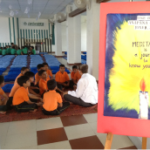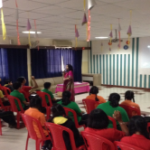Mindfulness
Mindfulness
What is Mindfulness?
Mindfulness involves training our attention to experience the present moment with greater curiosity and kindness. This helps us to not only appreciate what is going well but to respond more skillfully in the here and now to life’s inevitable challenges.
In adults, mindfulness training has been shown to improve health and well-being. People of all ages report after taking a mindfulness course that they have found that they can learn more effectively, think more clearly, perform better and feel calmer, less anxious, and less depressed.
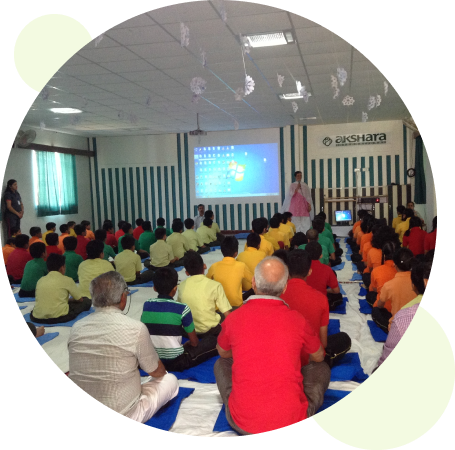
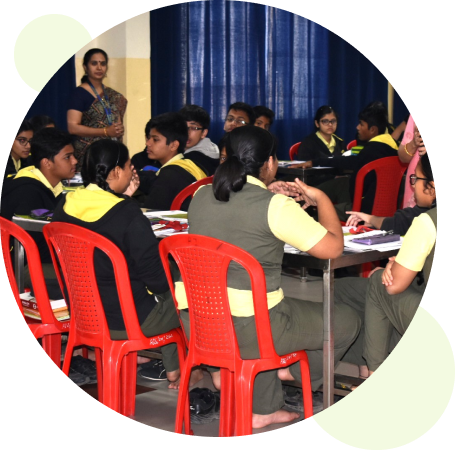
Benefits of Mindfulness
Thousands of research studies have evaluated the effects of mindfulness training in many contexts, and they identify consistent potential benefits to adults’ psychological health and wellbeing, including:
- Feeling calmer and more positive
- Helping cope with stress and anxiety
- Improving concentration and focus
- Getting on better with others
Mindfulness Practices @Akshara
- Daily Practice of breath meditation: We need to prepare the children from a young age by giving them tools and techniques to use in their moments of anxiety and stress. This led us to introduce the technique of anapanna (breath meditation) as part of their daily routine (10 minutes at the start of school and 10 minutes in the end)
- Group Meditation – Dhamma Hall: The school founders felt that mental wellbeing was more important than materialistic and academic success. Hence, a hall was dedicated for practice of group meditation wherein students of a section can go together and practice meditation for 30 minutes (one period of the weekly timetable). On days when students are not there in school, teachers start their working after a group meditation session in the dhamma hall.
- Mindfulness in Schools Project (MiSP): In western countries like UK, mindfulness is being taught to adolescents through a curriculum. Our founder, Jyoti madam, got herself trained on ‘. b’ (pronounced as dot b) curriculum designed by MiSP (Mindfulness In Schools Project), an UK organization, to impart an important life-skill to adolescents. She thereafter conducted sessions for Grade IX students with the help of our school counselor..b is a fun, engaging and useful ten-session mindfulness course for young people, adapted from the adult courses Mindfulness-based Stress Reduction and Mindfulness-based Cognitive Therapy.
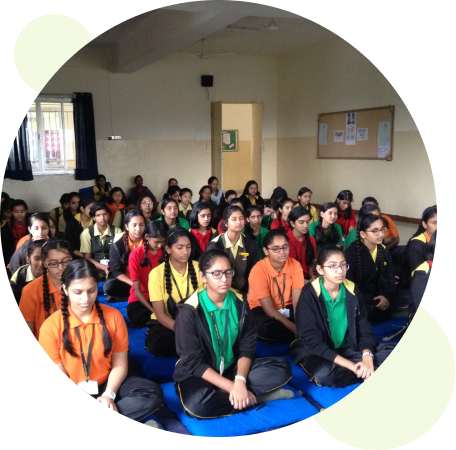

How .b Is Taught At Schools?
.b was carefully crafted by classroom teachers to engage everyone, including the most cynical of student audiences. It is taught with striking visuals, film clips, and activities that bring mindfulness to life without losing the expertise and integrity of classic mindfulness teaching
Who Can Teach .b?
.b has to be taught by teachers who themselves practice mindfulness regularly. An adult 8-week MBCT/MBSR or .b foundations course is a good start, followed by 6 months of developing a minimum daily practice of at least 20 minutes. Then sign up for the teach .b certification course which gives the skills, confidence, and materials .b effectively to young people.




